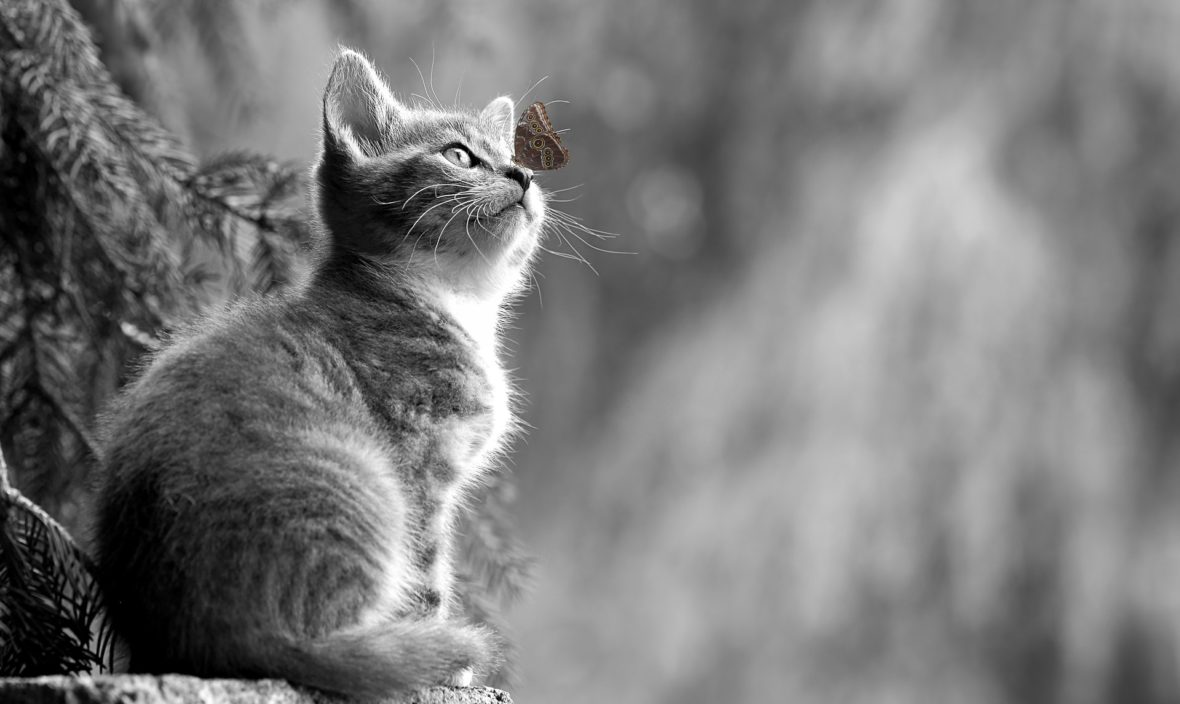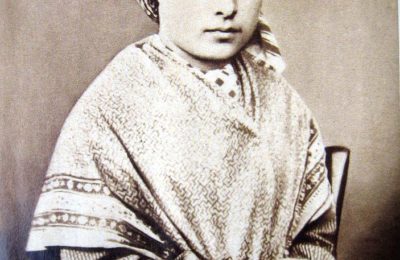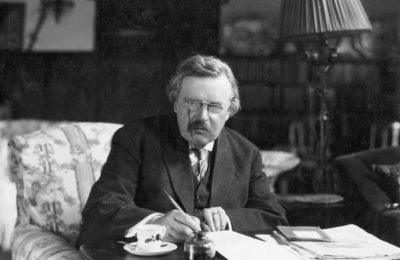Over the weekend it became noticeable that The Baby had become aware of the winged beauties in the yard who sing to her from her perch on the den couch. She even took a moment to point out another group of them from the arms of the parish priest as the adults talked in the church vestibule after Mass. The birds were tweeting outside the church, but the adults had long stopped noticing their calls. Meanwhile, she, still in the throes of her babyhood, heard their tidings, and with a grave face pointed to them, as if to summons us to condescend to her vantage point, and take notice.
It was lovely.
It is delightful to have a baby about to remind us of the glorious things that pass before us on any given day: the flower by the road, the twinkle of an eastern star, a butterfly that alights on the nose of a kitten, and so on. Babies often startle us from our set ways. They force us to view the world in their way, and to see, as G.K. Chesterton said, the marvelousness in all things. Chesterton also noted that if we did see the marvelousness in all things, that would include seeing the marvelousness in our neighbor. If we saw the marvelousness in our adult neighbor, we would treat him in a different way. We would treat our neighbors as we treat children. He said:
The two facts which attract almost every normal person to children are, first, that they are very serious, and secondly, that they are in consequence very happy…
…If we could see the stars as a child sees them, we should need no other apocalypse… We may scale the heavens and find new stars innumerable, but there is still the new star we have not found – [the one] on which we were born. But the influence of children goes further than its first trifling effort of remaking heaven and earth. It forces us actually to remodel our conduct in accordance with this revloutionary theory of the marvelousness of all things. We do actually treat talking in children as marvelous, walking in children as marvelous, common intelligence in children as marvelous… [and] that attitude towards children is right. It is our attitude towards grown up people that is wrong…
Our attitude towards children consists in a condescending indulgence, overlying an unfathomable respect; [we reverence, love, fear and forgive them.] We bow to grown people, take off our hats to them, refrain from contradicting them flatly, but we do not appreciate them properly… If we treated all grown-up persons with precisely that dark affection and dazed respect with which we treat [the limitations of an infant, accepting their blunders, delighted at all their faltering attempts, marveling at their small accomplishments], we should be in a far more wise and tolerant temper…
The essential rectitude of our view of children lies in the fact that we feel them and their ways to be supernatural while, for some mysterious reason, we do not feel oursleves or our own ways to be supernatural. The very smallness of children makes it possible to regard them as marvels; we seem to be dealing with a new race, only to been through a microscope. I doubt if anyone of any tenderness or imagination can see the hand of a child and not be a little frightened of it. It is awful to think of the essential human energy moving so tiny a thing; it is like imagining that human nature could live in the wing of a butterfly or the leaf of a tree. When we look upon lives so human and yet so small… we feel the same kind of obligation to these creatures that [God] might feel…
But [it is] the humorous look of children [that] is perhaps the most endearing of all the bonds that hold the cosmos together… [They] give us the most perfect hint of the humor that awaits us in the kingdom of heaven. (From the essay “In Defence of Baby Worship” from The Defendant, 1903.)
To treat fellow adults with “that dark affection and dazed respect with which we treat [the limitations of an infant, accepting their blunders, delighted at all their faltering attempts, marveling at their small accomplishments], we should be in a far more wise and tolerant temper.”
That is a lesson we might learn from children (and how we treat children): to not only delight in the marvelousness of everything around us, but to also delight in the adult who sits beside us on the bus.
Our Lord said we must become like little children to enter the Kingdom of Heaven. The Gospel does, indeed, turn the world upside down: children teach adults. We need to step down from the heights of our maturity to walk beside these little creatures who show us again, and again, that God did make His creation beautiful, and that includes each man and woman who He made in His image and likeness.
It is beautiful to contemplate that God might look at us with “that dark affection and dazed respect with which we treat [the limitations of an infant, accepting their blunders, delighted at all their faltering attempts, marveling at their small accomplishments].” God did adopt us as His children at Baptism: He is our Father. He made children. He asked us to become as children. He is Love. Combine all of these thoughts together, and a person could happily conclude that He does.
A child would believe that He does.
Then, so should we.
•SCF






